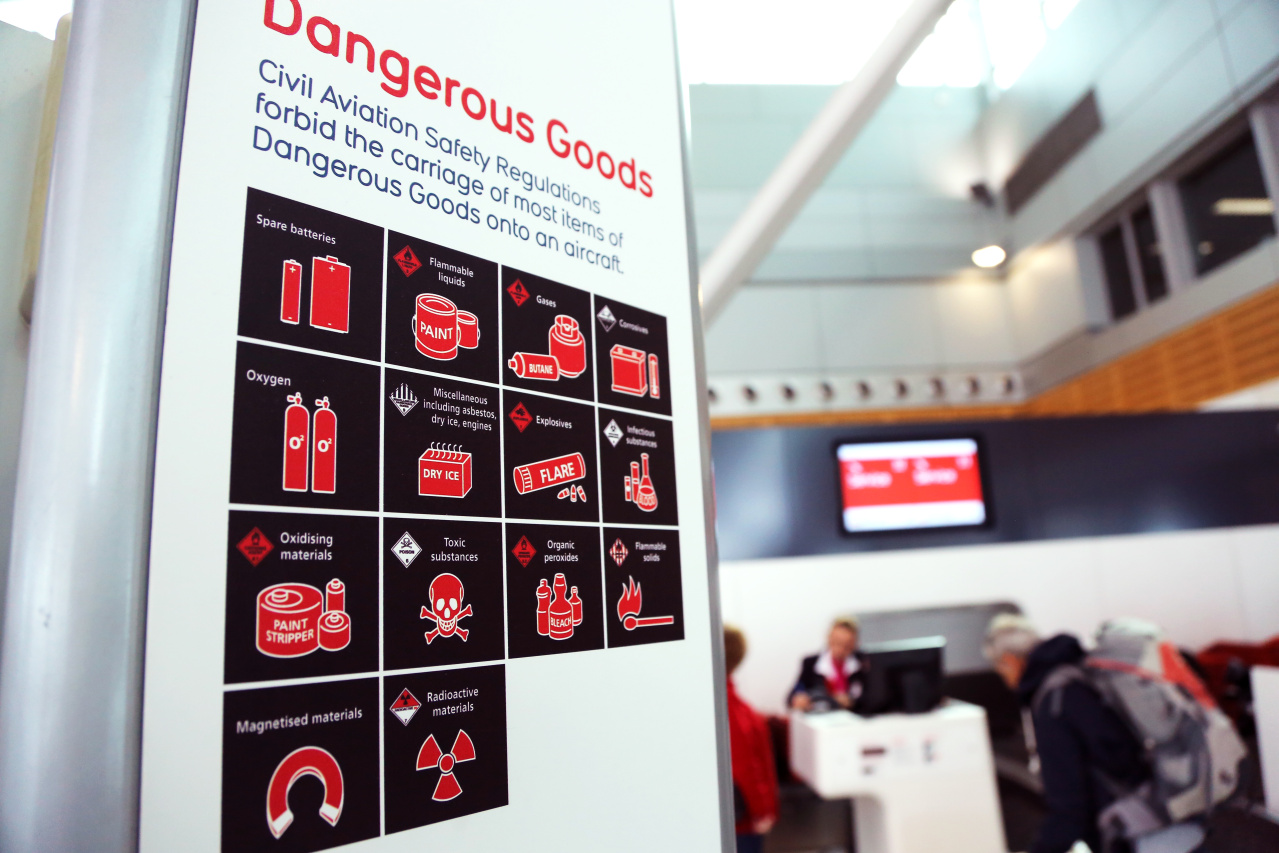CASA has opened public consultation in order to update and amend our dangerous goods (DG) rules. Among the topics up for consultation is whether passengers should be fined for bringing forbidden dangerous goods onto an aircraft and whether freight shippers should be fined for lodging undeclared or misdeclared dangerous goods for transport by air.
Operators and CASA inspectors are finding that passengers are carrying dangerous goods ranging from fireworks (regularly detected on return flights from Asia) to gas-fuelled camping stoves and industrial chemicals, with spare batteries and power banks carried in checked baggage continuing to be the most problematic issue.
Spare batteries and power banks, must be individually protected from short circuit and carried as part of carry-on luggage only. These items, if carried incorrectly, have the potential to generate heat and start an in-flight fire in the aircraft’s cargo hold. Passengers should note there are watt hour limitations for lithium batteries, which must be discussed with the airline, preferably ahead of time, or at check-in. The key message for all passengers is ‘If in doubt ask.’
CASA has a free Can I pack that? app available from the Apple App Store or Google Play. Or you can launch the website version from our dangerous goods web page on www.casa.gov.au.
CASA dangerous goods/ground operations specialist, Sam Bitossi, says ‘The intent of the proposed changes is not to issue fines to every passenger who makes an innocent mistake, but to address a gap in the current enforcement system.’
‘Right now, we can either issue a warning letter or take legal action, there’s no middle ground,’ she says.
‘The proposed offences being added into Part 92 would enable the issuance of Aviation Infringement Notices, meaning CASA would be able to fine passengers or shippers for doing the wrong thing, rather than wasting time, money and resources on court proceedings,’ Bitossi says.
The consultation also includes proposals for changing provisions where interpretation has caused difficulties, are difficult to implement/enforce or overly complex.
Specific changes include a proposed new subpart on the reporting of dangerous goods occurrences and options for smaller commercial operators to conduct their own case-by-case risk assessments for certain dangerous goods without seeking CASA permission.
The Part 92 amendments also aim to address issues with the handling of dangerous goods closer to the potential root cause of the problem. This includes the creation of a new class of training for people who complete the closure of packing.
‘The proposed training for the new Group G employee category doesn’t require CASA approval,’ Bitossi says, ‘It’s about having documented processes and procedures for packing and shipping dangerous goods defined as “not restricted” in the regulations or which require training in the form of “adequate instruction,” which we know compliant organisations have anyway.’
Flight Safety Australia: back in print
- Flight Safety Australia is available now by subscription from the CASA Online Store for $39.95 for four issues a year, delivered to your door in Australia.
- Subscribe by 25 August to receive the Spring 2019 issue. Subscribers after that date will receive the Summer issue as their first.
- The first 900 subscribers get the gift of a kneeboard, a multitool or a fuel drain (their choice, stocks permitting) with their subscription.
- Subscribe at shop.casa.gov.au
[contact-form][contact-field label=”Name” type=”name” required=”true” /][contact-field label=”Email” type=”email” required=”true” /][contact-field label=”Website” type=”url” /][contact-field label=”Message” type=”textarea” /][/contact-form]






Comments are closed.